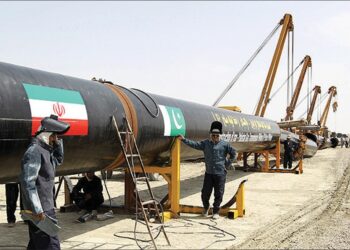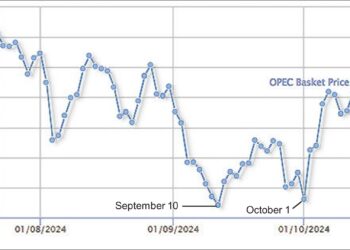October 04-2013
The Rohani Administration may be playing nice with the United States but it is playing a very hard-nosed game with India.
The Rohani government has now withdrawn an appealing offer made months ago by the Ahmadi-nejad Administration to attract Indian firms to help develop Iranian oilfields. And it has now slapped down an Indian proposal that India pay for all its Iranian oil purchases in rupees and not any hard currency.
The hardline Iranian position has prompted considerable mumbling in India that Iran only appreciates India when Iran is being pounded by the Americans and doesn’t give a damn about India now that Tehran sees a better hand to the West.
India had been paying 45 percent of its oil bill to Iran in rupees and 55 percent in euros. When the Turkish bank that used to move those euros refused to continue doing that, India proposed paying for all its Iranian oil in rupees. Iran has now said no.
That signals that Iran wants the hard currency euros it can spend anywhere and not tall stacks of rupees it can only use to buy Indian goods. But it also means that India may be less interested in buying Iranian oil with all the hassle and political strife that entails.
The Hindu daily quotes “highly placed sources” in India’s Oil and Natural Gas Ministry as saying Iranian Oil Minister Bijan Namdar-Zanganeh has conveyed to the Indian government that Iran will not accept full rupee payment for crude oil imports, as agreed in July, and India will have to pay the rest in euros.
In addition, Iran has also told Indian diplomats in Tehran that it is withdrawing its offer of a production sharing agreement (PSA) for the development of the Farzad-B gasfield by an Indian-led consortium as the conditions were not acceptable to the new government.
And, in a third rebuff to India, the Indian Express reports that the Rohani Administration has withdrawn the Ahmadi-nejad offer of natural gas at a heavily discounted price of 84 cents per million BTUs for a urea plant that Indian investors were interested in building somewhere on Iran’s coastline.
Petroleum Minister Veer-appa Moily had rolled out a plan for saving around $8.47 billion in crude oil imports by stepping up imports from Iran while paying for them in rupees. “Iran has stopped issuing invoices for full rupee payment…. India will not come under strain on this account as Iraq has offered to fill in the gap for supply of crude oil, but then outflow of dollars will happen. This development is totally unexpected for us,” a senior official of the Indian Petroleum Ministry told The Hindu.
Under the PSA, an operator gets a share of production in proportion to its investment. It effectively owns part of the field. But PSAs are barred by Iran’s constitution, so it isn’t understood how the Ahmadi-nejad Administration was making any such offer to India. In the normal service contract that Iran has offered the last two decades, the Indian consortium would have gotten a flat 15 per cent return on the investment for developing the field.
In fact, the Indian Petroleum Ministry had even gone to the cabinet to create a new company exclusively to do oil and gas business in Iran and to try to avoid US and EU sanctions on the existing oil companies.
As for the euro-rupee issue, since July 2011, India had been paying Iran through the Ankara-based Halkbank in euros for 55 per cent of its oil purchases. However, Halkbank ceased that on February 6 as the US tightened its sanctions.
India’s oil buys from Iran have been cut almost in half. In 2009-10, Iran supplied 21.2 million tons; in 2012-13, that was down to 13.1 million tons.

















